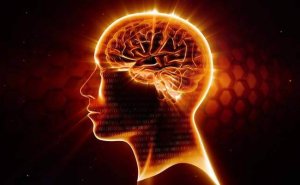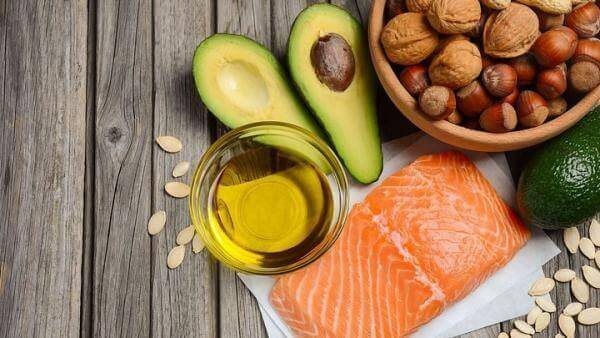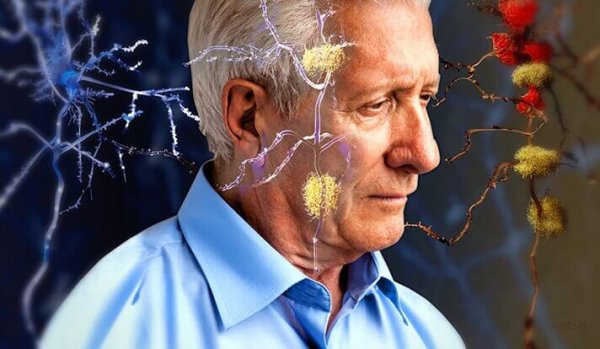Omega-3: The Best Neuroprotector Ever


Written and verified by the psychologist Valeria Sabater
Omega-3 fatty acids act as super-powerful neuroprotectors. Omega-3 helps our brain work better, prevents depression, and protects us from oxidative damage and inflammation. This is important information because it is now evident that our modern diet is neglecting this essential nutrient.
One interesting fact is that nearly 8% of our brain is made up of this docosahexaenoic acid (DHA). This substance performs vital functions in our neuronal structures. In addition, studies show that omega-3 is essential for optimal fetal development. Eating a diet rich in this compound during pregnancy is related to intelligence and high cognitive performance.
An omega-3 deficiency during fetal development is associated with poor cerebral development and neurocognitive dysfunction.
The fact that our brain needs this type of polyunsaturated fatty acid is no coincidence. We know, for example, that the biggest evolutionary “leap” in our brain development occurred about 200,000 years ago.
Multiple archaeological sites show that this was when our ancestors started to live near rivers or the sea so they could fish. This diet rich in fish, shellfish, and amphibians gave us more energy and better nutrients to optimize brain development.
Experts say omega-3 is a key nutrient that should be a part of our diet “from cradle to grave.” Even our grandmas, guardians of popular wisdom, are always telling us to eat more fish. And they aren’t wrong, but there is one small detail that our dear grandmas might not be aware of.
Today our oceans and seas are more and more polluted. This means that many oily fish that were once so healthy now harbor high levels of mercury and dioxins. The good news is that omega-3 is found in other foods like nuts, seeds, and vegetables. If we start eating more of these foods, our brain will thank us.

Omega-3 gives us a hardier and more agile brain
Studies on the impact of omega-3 on our brains couldn’t be more positive. In lab tests, scientists have discovered that mice who received omega-3 supplements show better cerebral plasticity. They also show a higher level of synapses between nerve cells, as well as better connectivity.
Scientists have also done interesting work that shows that these fatty acids reduce symptoms of depression and memory loss.
Until now, this nutrient was known for its cardiovascular health benefits. That caused an explosion of all types of dietary supplements that promise to prevent ischemic cardiomyopathy. That said, nutritionists advise that the best choice is still a healthy diet. They say that we should choose “natural” options.
Eating a healthy diet has many advantages that we should know about:
- Sticking to a diet rich in omega-3 doesn’t just support our heart. Scientists have discovered that although it doesn’t benefit patients with Alzheimer’s, it can benefit those with mild cognitive decline.
- In other words, omega-3 has a neuroprotective effect. It isn’t curative, but if we take proper doses of it throughout our lives, we can reach old age with an agile, hardy brain.

- We know that omega-3 improves short-term memory, verbal memory, attention, and the speed at which we process information.
- Another interesting point is how omega-3 relates to our mood. Omega-3 is able to reduce (not cure) symptoms of depression for one specific reason. This type of fatty acid facilitates the transportation of serotonin throughout the body. It isn’t the same as fluoxetine (Prozac) but it establishes proper chemical and connective processes for maximum health.
Curiosity, relationships, and good nutrition are important for a healthy brain
There are many factors involved in having a healthy, agile brain with good memory and ability to learn new things. Learning a language, playing an instrument, or increasing the number of books we read in a month isn’t enough. Things like good stress management and enjoying meaningful and rewarding relationships are also important.
In addition to those factors, there is one more that is essential for brain health: our diet. Our modern diet and the type of vegetables, fruits, and oils that end up in our supermarket are not always as healthy as we would like. Eating well requires effort, will, and a little bit of wisdom.
Supplements from the pharmacy are not enough to make up for our omega-3 deficiency. The best option is to eat real food rich in omega-3, and if they are organic, even better.

Here is a list of some easy-to-find foods that are rich in omega-3:
- Flaxseed oil
- Chia seeds
- Flaxseed
- Pumpkin seeds
- Krill oil
- Olive oil
- Salmon
- Oysters
- Crab
- Sardines
- Cod
- Nuts
- Broccoli
- Spinach
- Tofu
Having a healthy brain, a good memory, and a positive state of mind doesn’t just depend on our attitude. It also depends on how we take care of ourselves and what we eat. Let’s invest a little more effort in ourselves for the sake of our health and happiness.
This text is provided for informational purposes only and does not replace consultation with a professional. If in doubt, consult your specialist.








